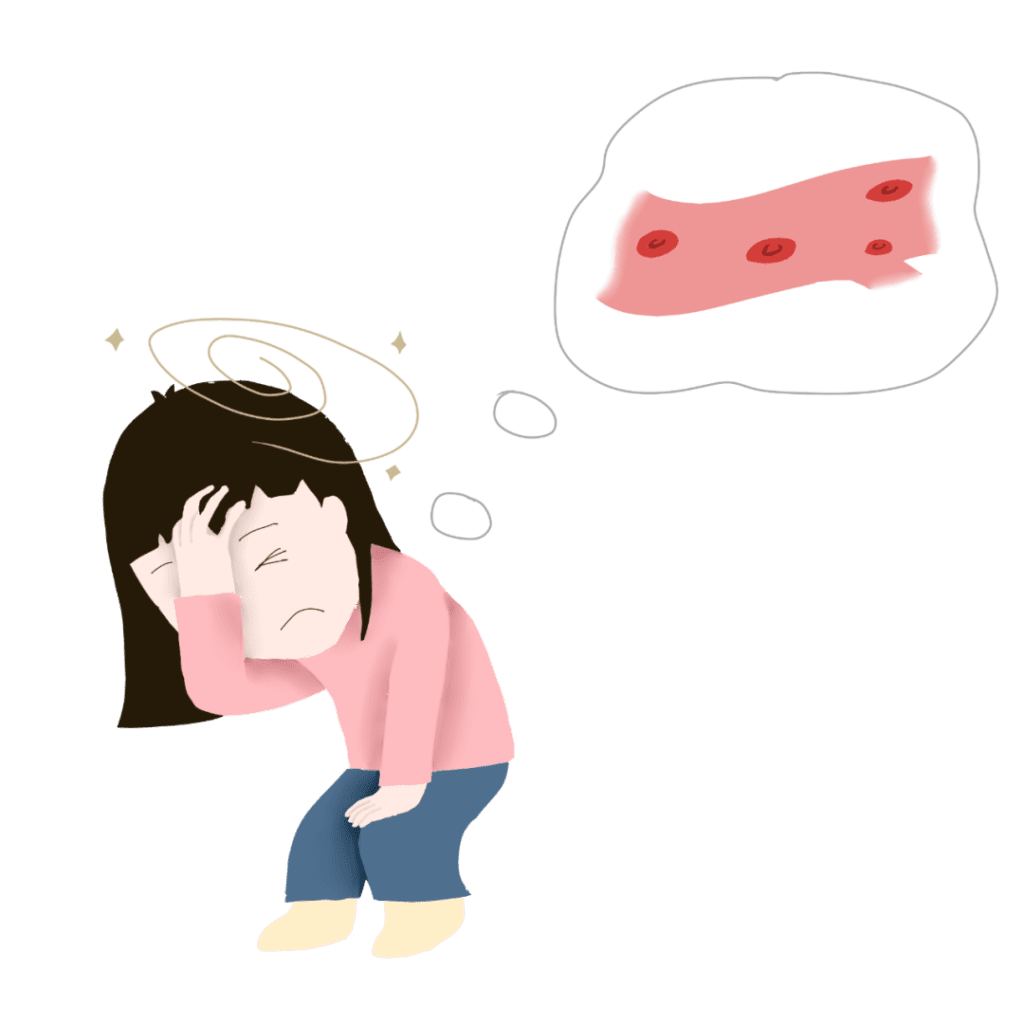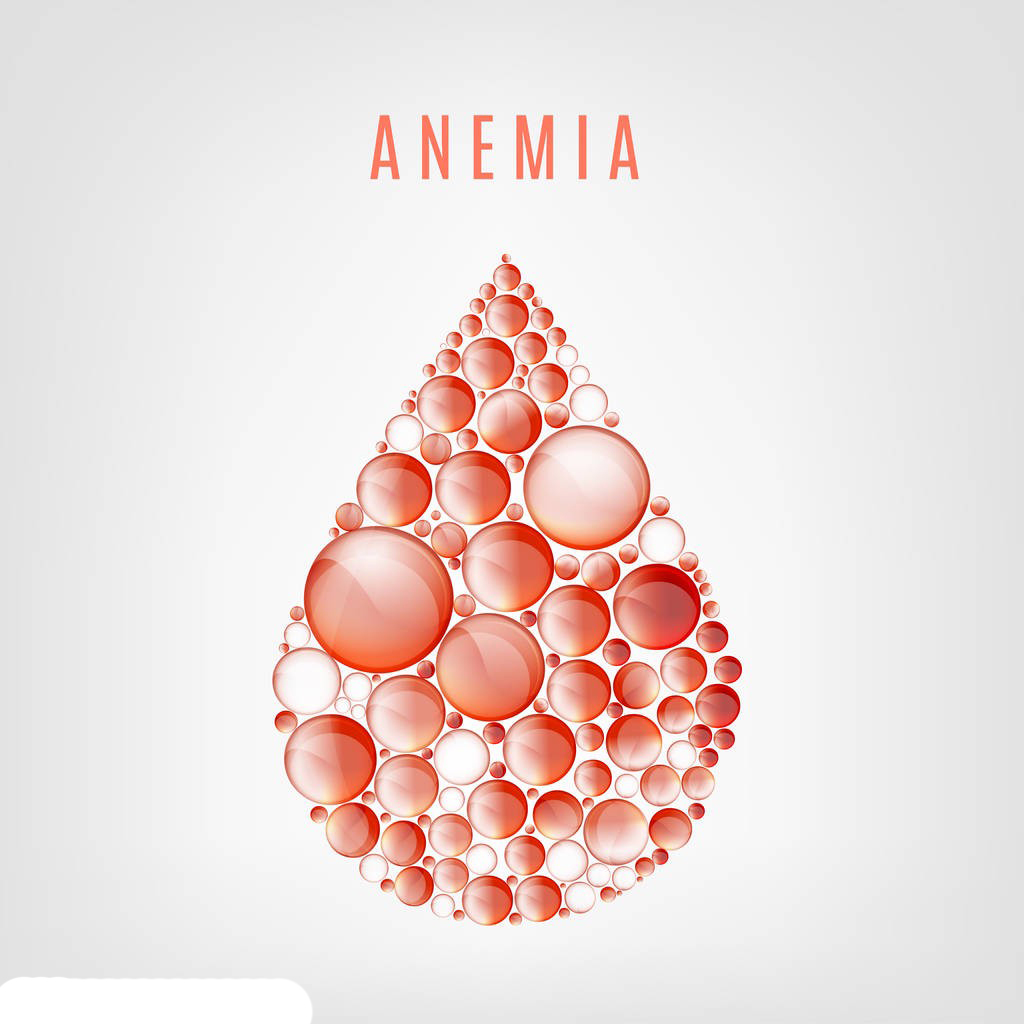Do you understanding the symptoms of anemia?
What Are the Symptoms of Anemia?
The symptoms of anemia vary according to the type of anemia, the underlying cause, the severity and any underlying health problems, such as hemorrhaging, ulcers, menstrual problems, or cancer. Specific symptoms of those problems may be noticed first.
The body also has a remarkable ability to compensate for early anemia. The signs of anemia can be so mild that you might not even notice them. At a certain point, as your blood cells decrease, symptoms often develop.

Depending on the cause of the anemia, symptoms may include:
- Dizziness, lightheadness, or feeling like you are about to pass out
- Fast or unusual heartbeat
- Headache
- Pain, including in your bones, chest, belly, and joints
- Problems with growth, for children and teens
- Shortness of breath
- Skin that’s pale or yellow
- Cold hands and feet
- Tiredness or weakness
- Leg cramps
- Insomnia
- Difficulty concentrating
What Are the Risk Factors of Anemia?
These factors place you at increased risk of anemia:
- Chronic conditions. If you have cancer, kidney failure or another chronic condition, you could be at risk of anemia of chronic disease. These conditions can lead to a shortage of red blood cells.
Slow, chronic blood loss from an ulcer or other source within your body can deplete your body’s store of iron, leading to iron deficiency anemia.
- Family history. If your family has a history of an inherited anemia, such as sickle cell anemia, you also might be at increased risk of the condition.
- Age. People over age 65 are at increased risk of anemia.
- A diet lacking in certain vitamins and minerals. A diet consistently low in
iron, vitamin B-12, folate and copper increases your risk of anemia.
- Intestinal disorders. Having an intestinal disorder that affects the absorption of nutrients in your small intestine — such as Crohn’s disease and celiac disease — puts you at risk of anemia.
- Menstruation. In general, women who haven’t had menopause have a greater risk of iron deficiency anemia than do men and postmenopausal women. Menstruation causes the loss of red blood cells.
- Pregnancy. Being pregnant and not taking a multivitamin with folic acid and iron, increases your risk of anemia.
- Other factors. A history of certain infections, blood diseases and autoimmune disorders increases your risk of anemia. Alcoholism, exposure to toxic chemicals and the use of some medications can affect red blood cell production and lead to anemia.
What Are the Symptoms of Anemia?
Left untreated, anemia can cause many health problems, such as:
- Extreme fatigue. Severe anemia can make you so tired that you can’t complete everyday tasks.
- Heart problems. Anemia can lead to a rapid or irregular heartbeat (arrhythmia). When you’re anemic your heart pumps more blood to make up for the lack of oxygen in the blood. This can lead to an enlarged heart or heart failure.
- Pregnancy complications. Pregnant women with folate deficiency anemia can be more likely to have complications, such as premature birth.
- Death. Some inherited anemias, such as sickle cell anemia, can lead to life-threatening complications. Losing a lot of blood quickly results in acute, severe anemia and can be fatal. Among older people, anemia is associated with an increased risk of death.

Call Your Doctor About Anemia If:
Talk to your doctor or Chiropractor Near Me in Kings Park Chiropractic if you have risk factors for anemia or notice any signs or symptoms of anemia including:
- Symptoms of an ulcer, gastritis, hemorrhoids, bloody or tarry stools, or colorectal cancer
- Concern about environmental exposure to lead
- A hereditary anemia runs in your family and you would like genetic counseling before having a child
- Persistent fatigue, breathlessness, rapid heart rate, pale skin, or any other symptoms of anemia; seek emergency care for any trouble breathing or change in your heart beat.
- Poor diet or inadequate dietary intake of vitamins and minerals
- Very heavy menstrual periods
- For women considering pregnancy, your doctor will likely recommend that you begin taking supplements, especially folate, even before conception. These supplements benefit both mother and baby.
Connect with others like you for support and answers to your questions in the Health consultation and physical therapy support group on kings park chiropractic clinic, a patient community.
Kings Park Chiropractic, We offer allied health services since 2018, We offer various Chiropractic Disciplines. Our team is highly-trained and experienced.
Western Sydney Chiropractic Clinic Serves Suburbs – Chiropractor Near Me
Seven Hills NSW 2147
Kings Langley NSW 2147
Kings Park NSW 2148
Blacktown NSW 2148
Baulkham Hills NSW 2153
Norwest NSW 2153
Castle Hill NSW 2154
Rouse Hill NSW 2155
Kellyville NSW 2155
Kellyville Ridge NSW 2155
Schofields NSW 2762
Quakers Hill NSW 2763
Marsden Park NSW 2765
Box Hill NSW 2765
Rooty Hill NSW 2766
Stanhope Gardens NSW 2768
The Ponds NSW 2769

